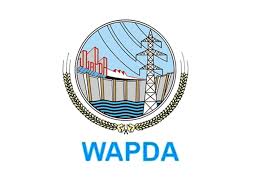ISLAMABAD: The Kot Addu Power Company Limited (KAPCO) has urged the National Electric Power Regulatory Authority (NEPRA) to rectify its tariff determination dated September 23, 2025, by explicitly confirming that the tariff for KAPCO’s 495 MW Combined Cycle Power Plant (CCPP) remains valid for a period of three years. In the absence of a valid tariff, KAPCO asserts it will have no legal or financial basis to make its plant available for system support.
In a letter addressed to the Chairman of NEPRA, Chief Executive Officer (CEO) of KAPCO, Mr. Shahab Qader Khan, drew the Authority’s attention to this critical matter regarding the continuity of KAPCO’s tariff, following NEPRA’s Order of September 23, 2025, concerning the final tariff determination.
According to the CEO, given KAPCO’s essential role in ensuring grid reliability and system stability—a role consistently acknowledged across successive planning and regulatory documents—an urgent rectification and confirmation of the tariff validity period is requested, in line with the provisions of the Tripartite Power Purchase Agreement (TPPA) and NEPRA’s own determinations.
Clause VII of the referenced Order states:
“The Authority has decided to allow tariff for 495 MW till September 2025, which shall be subject to extension on the basis of approved IGCEP/PAP. The maximum term of tariff shall be three years in line with the TPPA.”
Mr. Khan noted that this decision appears to rely primarily on the IGCEP 2022–31, which anticipated only minimal dispatch from KAPCO until FY 2025–26:
“…Minimum Dispatch of 500 MW from existing KAPCO CCPP (Block-I and Block-II) in the months of May to September until year 2025 has been considered, beyond its PPA expiry i.e., Oct 2022, owing to network requirements/constraints…”
However, he stressed that this reliance no longer reflects the current realities of the power system or the Authority’s own subsequent findings. Several key developments and determinations substantiate the continued system requirement for KAPCO:
Power Acquisition Plan (PAP 2022–27):
Issued in May 2024, the PAP formally recognizes continued dependence on KAPCO’s 500 MW capacity beyond FY 2025–26, until critical transmission infrastructure is completed:
“…it has been observed that 500 MW from KAPCO will be required till FY 2025–26, after which it may not be required owing to, inter alia, upgradation of Vehari 220/132 kV Substation to 500 kV and availability of Nagshah 220/132 kV Substation in FY 2025–26.”
Draft Transmission System Expansion Plan (TSEP) issued in August 2025, the TSEP reaffirmed this reliance, noting that these transmission projects remain incomplete and that KAPCO’s availability continues to be essential:
“…timely completion of Vehari 500 kV and Nagshah 220/132 kV grid stations is instrumental in eradicating dependence of secure system operation on KAPCO or other generation in the vicinity. Therefore, these projects should be expedited on priority basis.”
In its order extending KAPCO’s Generation Licence, NEPRA acknowledged NTDC’s submission that approximately 500 MW of KAPCO’s capacity would remain necessary until at least June 2027:
“…NTDC in the submitted IGCEP for 2024–34 has duly considered approximately 500 MW capacity of KAPCO to be retained in the system up till June 2027.”
“…the SO/NTDC after a detailed analysis has submitted that it shall require the generation facility of KAPCO for the reliability and stability of the system till 2027–28 during the months of May to September in order to meet the high demand in the region of MEPCO…”
Mr. Khan emphasized that these official documents and determinations make it clear that reliance solely on IGCEP 2022–31 no longer reflects NEPRA’s current position or prevailing system requirements.
Accordingly, KAPCO has requested that NEPRA rectify its tariff determination of September 23, 2025, by explicitly confirming that the tariff for the 495 MW CCPP shall: (i) remain valid for the full three (3) years permitted under the TPPA—i.e., until September 2028; or (ii) continue until the commissioning of the Vehari 500 kV and Nagshah 220/132 kV substations, whichever occurs earlier.
KAPCO maintains that in the absence of a valid tariff, the company will have no legal or financial justification to keep its complex available for system support.
“This would jeopardize grid stability in the MEPCO region, undermine planning assumptions embedded in the PAP and IGCEP, and pose broader reliability risks to the National Grid,” Mr. Khan stated.
The CEO urged NEPRA to consider that KAPCO’s request is fully aligned with the Government of Pakistan’s policy objectives—to ensure a reliable power supply, optimize the use of existing generation assets, and minimize consumer costs through efficient utilization of already-integrated capacity.
Ends
Canadian Envoy meets Petroleum Minister
ISLAMABAD : Federal Minister for Petroleum Ali Pervaiz Malik held a meeting with the High Commissioner of Canada to Pakistan,...
Read more














